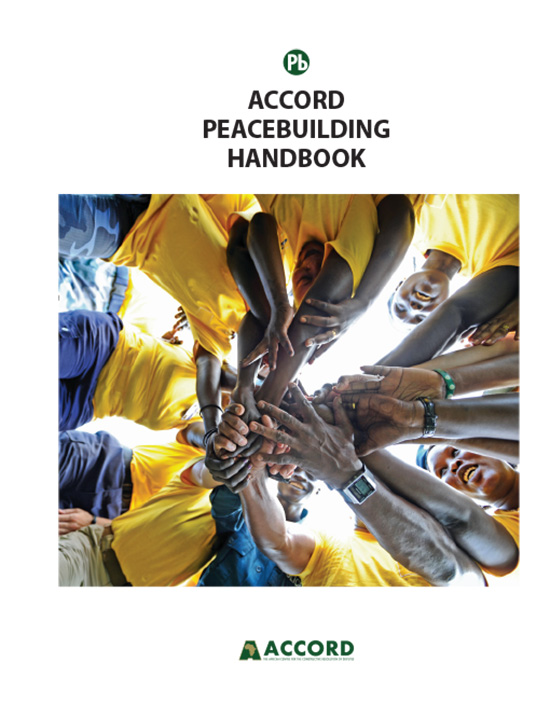
The ACCORD Peacebuilding Handbook has been developed by ACCORD, through its African Peacebuilding Coordination Programme (APCP), with financial support from the Government of Finland. This Handbook is expected to give a broad-based introduction to various aspects of peacebuilding, with its methodology building on ACCORD’s cumulative experience in conflict management, training, policy, and research in Africa.
It is specifically designed to meet the needs of a wide variety of peacebuilders by providing a better understanding of several different approaches to peacebuilding, including its concepts, definitions and historical context but also practical skills that might be useful for peacebuilding practitioners acting in different fields and arenas. Emphasised throughout the Handbook is the importance of sensitivity to the everyday experiences of local communities living through peacebuilding interventions and the core theme of the Handbook is the central role of local and national ownership in securing sustainable peace.
The first edition of the ACCORD Peacebuilding Handbook is a product of ACCORD’s Peacebuilding Unit. Based on the premise that in order to be relevant, peacebuilding needs to be anchored in the principles of local ownership and context adaptability, this Handbook is intended to be an evolving platform on which to build and refine future reference for peacebuilding work and trainings. It will thus undergo an extensive piloting and review process, ensuring it is reflective of a diversity of views, expectations, and needs.
All comments and suggestions are welcomed. While general comments on content are welcomed, particularly of interest to ACCORD are practical tools for peacebuilding; from planning to implementation to monitoring and evaluation. ACCORD is also interested in personal reflections and country specific case studies relevant to concepts and dimensions contained within the Handbook. All comments and suggestions may be forwarded to pbhandbook@accord.org.za.


